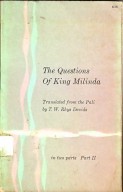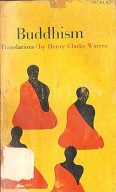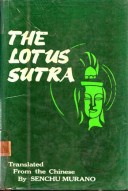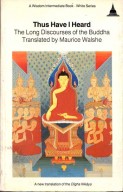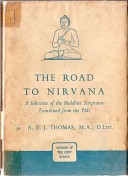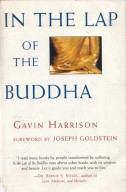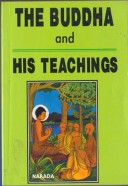Tìm Sách
Sách tiếng Anh-English >> Sources Of Chinese Tradition Sources Of Chinese Tradition
Thông tin tra cứu
- Tên sách : Sources Of Chinese Tradition Sources Of Chinese Tradition
- Tác giả : Wm. Theodore De Bary
- Dịch giả :
- Ngôn ngữ : Anh
- Số trang : 565
- Nhà xuất bản : Columbia University Press NEWYORK
- Năm xuất bản : 1964
- Phân loại : Sách tiếng Anh-English
- MCB : 1210000004943
- OPAC :
- Tóm tắt :
Introduction to Oriental Civilization
PREFACE
This book represents the last in a series dealing with the civilizations of China, Japan, and India. It contains source readings that tell us what the Chinese have thought about themselves, the universe they lived in, and the problems they faced living together. It is meant to provide the general reader with an understanding of the background of Chinese civilization, especially as this is reflected in intellectual and religious traditions which have survived into modern times. Much attention is also given, however, to political and social questions which the ordinary history of philosophy or religion would not treat. Indeed, as compared to Japan and India, the dominant traditions of Chinese thought have been less markedly religious in character, there being a noticeable disjunction between the popular practice of religion and the intellectual- activity of the ruling elite, which had a more secular orientation. To compensate somewhat for this relative neglect of religious matters by the articulators and preservers of formal tradition, the Appendix in Volume II is devoted to popular religious movements and secret societies.
As in the other volumes -of this series, the readings are drawn from contemporary literature as well as classical. Since in the modern period the urgency of political and social problems has been uppermost in the minds of educated Chinese, it is natural that such tendencies as reformism, nationalism, liberalism, and Communism should be the center of attention in contemporary writings. If this means that other currents of thought—the influence of Western religions, formal philosophy, and art—are inadequately represented, we can only regret that a survey which spans so many centuries allows less scope than one might want for dealing with the variety of thought in any given period—with significant undercurrents and counter trends, or with distinctive individual contributions which nonetheless had little general influence. We have striven for variety and balance in the presentation of Chinese thought as a whole, not necessarily of each era and dynasty.
A further word may be needed concerning the rigid selectivity we have thus been forced to adopt. Those with a distaste for metaphysics and mystical psychology may wonder why almost three chapters are devoted to such aspects of Buddhist and Neo-Confucian philosophy (which indeed present formidable problems in translation and interpretation) when much material that is less forbidding and more understandable in the literature of Chinese thought has been left out. The reason is that we have tried to represent the Chinese tradition in all its range and depth, not merely in its most approachable and appealing aspects. To discard centuries of speculative thought, which the Chinese have considered of great significance in their own tradition, would only be to confirm the common stereotype of the Chinese as practical and worldly in outlook. Practical and worldly they are, but they have also manifested a speculative and contemplative quality of mind which few other peoples can match, and which shows itself in the writings of even so “practical” a man as Mao Tse-tung.
In contrast to most anthologies the translations included here are for the most part our own, and a major portion are of texts not previously translated into English. Because of the unfamiliarity and complexity of many subjects dealt with, we have found it necessary to include more historical and explanatory material than is usual in a set of source readings. Nevertheless, the reader who seeks a fuller knowledge of the historical and institutional background would do well to consult a general or cultural history. It is also possible, of course, to find further literature on some subjects dealt with here in only summary fashion. For topics in traditional Chinese philosophy, Wing-tsit Chan’s An Outline and Annotated Bibliography of Chinese Philosophy (Far Eastern Publications, Yale, 1959), and for topics in modern Chinese thought, the bibliography appended to J. K. Fairbank, The United States and China, rev. ed. (Cambridge, Mass, Harvard, 1958), will prove useful as a reading guide.
The preparation of this volume has been forwarded by the generous collaboration of colleagues at both Columbia and sister institutions. Because of the cooperative nature of the project, and the necessity for integrating and adapting diverse contributions to form a coherent whole, there are few chapters for which a single individual can be identified as the sole author, and the general editor must assume the responsibility for the final form in which each appears.
The contributions of various collaborators may, however, be roughly listed as follows: Mr. de Bary is the principal author of chapters 15, 16, 19, 20, 21, 22, and 25. As editor he is also responsible for the general plan of the work and for most of the introductory materials in their present form. Wing-tsit Chan of Dartmouth College has assisted in many aspects of the editorial work and is also principal author of chapters II, 13, 14, 17, 18, 24, and the Appendix. Burton Watson, mainly responsible for chapters I and 7, 8, 9, and 10 and the final section of chapter 16, also devoted the year 1955-56 to editorial tasks of many types in connection with chapters 1-19. Y. p. Mei of the State University of Iowa contributed substantially to chapters 2,3,4,5, and 6; Leon Hurvitz, now of the University of Washington, to chapters 12 to 14; T’ung-tsu ch’u, formerly of Columbia and now of Harvard University, to chapters 15 and 16, and Chester Tan of New York University to chapters 22 and 23. John Meskill helped with the final checking of the manuscript, maps, chronological tables, and the bibliography (available in the clothbound edition).
Wm. Theodore De Bary
Columbia College
New York City
July, 1963
CONTENTS
Chronological Table
Chapter I: The Chinese Tradition in Antiquity
Book of History, 8; Book of Odes
Chapter II: Confucius
Selections from the Analects,
Chapter III: Mo Tzu: Universal Love, Utilitarianism, and Uniformity
Selections from the Mo Tzu,
Chapter IV: Taoism
METAPHYSICS AND GOVERNMENT IN THE LAO TZU
Selections from the Lao Tzu (or Tao-te Ching),
SKEPTICISM AND MYSTICISM IN CHUANC TZU
Selections from the Chuang Tzu,
Chapter V: Molders of the Confucian Tradition
MENCIUS ON GOVERNMENT AND HUMAN NATURE
Selections from the Mencius,
RATIONALISM AND REALISM IN HSUN TZU
Selections from the Hsiin Tzu,
THE GREAT LEARNING (ta HSUEH)
Selections from The Great Learning,
THE MEAN (chung Yung)
Selections from The Mean,
Chapter VI: The Legalists
THE THEORIES OF HAN FEJ TZU
Selection from the Han Fei Tzu,
LI ssu: LEGALIST THEORIES IN PRACTICE
Memorial on Annexation of Feudal States; Memorial on the Abolition of Feudalism; Memorial on the Burning of Books; Memorial on Exercising Heavy Censure
Chapter VII: The Imperial Order
THE HAN REACTION TO Ch’iN despotism
CHIA 1: The Faults of ch’in,
The Rebellion of Ch’en She and Wu Kuang; The Rise of Liu Chi, Founder of the Han; Liu Chi Becomes the First Emperor of the Han Dynasty
THE THEORETICAL BASIS OF THE IMPERIAL INSTITUTION
The Quietude of the Ruler and the Delegation of Power; Political Relativism and the Importance to Timeliness
THE MORAL LEADERSHIP OF THE EMPEROR
The Moral Power of the Ruler
TUNG chung-shu: The Threefold Obligations of the Ruler; How the Way of the King Joins the Trinity; Human Nature and Education; Rites, Music, and Morality
FILIAL PIETY
THE theory of portents
The Theory of Portents; Portentous Happenings During the Han and Their Significance,
THE dynastic mandate
The Age of Grand Unity and the Rise of Dynastic Rule; On the Destiny of Kings; On the Auspicious Omens Accompanying Wang Mang’s Rise
CONCLUSION
Chapter VIII: The Universal Order
THE INTELLECTUAL SYNTHESIS
Conclusion to the Huai-nan Tzu,
SSUMA tan: The Discussion of the Essentials of the Six Schools
THE CREATION, STRUCTURE, AND WORKING OP THE UNIVERSE
The Creation of the Universe; Theories of the Structure of the Universe; The “Great Appendix” to the Book of. Changes: The Process of Universal Change; The Beginning/ of Human Culture,
THE FIVE AGENTS
The Reconstruction of Chinese History
TUNC chunc-shu: Production and Succession of the Five Agents
THE CONCEPT AND MARKING OF TIME HEAVEN, EARTH, AND MAN
Lii-shih ch’un-ch’iu: The First Month of Spring
Chapter IX: The Economic Order an
Economic Distress at the End of the Ch’in Dynasty; Edict of Emperor Wen on the Primacy of Agriculture
Ch’ao ts’o: Memorial on the Encouragement of Agriculture; TUNC chung-shu: Memorial on Land Reform
STATE CONTROL OF COMMERCE AND INDUSTRY
The Debate on Salt and Iron
THE REFORMS OF WANG MANG
Edict on Land Reform
CONCLUSION
Chapter X: The Great Han Historians
THE RECORDS OF THE HISTORIAN
SSU-MA ch’ien: The Sacred Duty of the Historian; Methods of the Historian
The Writing of the First Dynastic History
Chapter XI: Neo-Taoism
TAOISM IN PHILOSOPHY
KUO HSIANG: Commentary on the Chuang Tzu
HSI k’ang: On Partiality; On the Nourishment of Life;
The Lieh Tzu; The “Yang Chu” Chapter of Lieh Tzu
TAOISM IN ART
Tsung ping: Introduction to Landscape Painting
WANG WEI: Introduction to Painting; RELIGIOUS TAOISM
Ko hung: The Belief in Immortals; Alchemy; The Merit System; Taoism in Relation to Other Schools
Chapter XII: The Introduction of Buddhism
BASIC TEACHINGS OF BUDDHISM
THE COMING OF BUDDHISM TO CHINA
Mou tzu: The Disposition of Error
Hui-yuan: a Monk Does Not Bow Down Before a King
Chapter XIII: The Schools of Buddhism
THE GENERAL CHARACTER OF SECTARIAN BUDDHISM
THE SCHOOLS OF CHINESE BUDDHIST PHILOSOPHY
The Three-Treatise School
Chi-tsang: The Profound Meaning of the Three Treatises
The School of Consciousness-Only
Hsuan-chuang: Confirmation of the Consciousness Only System
The Lotus School: T’ien-T’ai Syncretism
The Scripture of the Lotus of the Wonderful Law
Hui-ssu: The Method of Concentration and Insight in the Mahãyana,
Chih-k’ai: The Profound Meaning of the Scripture of the Lotus of the Wonderful Law; The Great Concenưation and Insight
The Flower Garland School
Fa-tsang: A Chapter on the Golden Lion
Chapter XIV: The Schools of Buddhism II
THE PURE LAND SCHOOL
T’an-luan: Commentary to Vasubandhu’s Essay on Rebirth; tao-ch’o: Compendium on the Happy Land
THE MEDITATION SCHOOL
The Platform Scripture of the Sixth Patriarch; Shen-hui: Elucidating the Doctrine; I-hsuan: a Sermon; PEN-CHI: Questions and Answers
Chapter XV: Precursors of the Confucian Revival HAN Ytj’s COUNTERATTACK on taoism and buddhism
Memorial on the Bone of Buddha; Discourse on Teachers (Shih-shuo); What is the True Way? (Yuan Tao)
Emperor Wu-tsung’s Edict on the Suppression of Buddhism
Chapter XVI: The Confucian Revival in the Sung
Ou-Yang hsiu: Essay on Fundamentals (Pen lun); On Parties,
THE CONFUCIAN PROGRAM OP REFORM
Ch’eng yi: Memorial to the Emperor Jen-tsung; Ch’eng hao: Ten Matters Calling for Reform; CHANG Tsai: Land Equalization and Feudalism; Su hsun: The Land System—A Dissenting View
THE NEW LAWS OP WANG AN-SHIH
WANG an-shih: Memorial to the Emperor Jen-tsung; Memorial on the Crop Loans Measure,
Ch’eng hao: Remonstrance Against the New Laws; Wang an-shih: In Defense of Five Major Policies
Su shih: Memorial to Emperor Shen-tsung on the New‘Laws of Wang An-shih
SSU-MA kuanc: a Petition to Do Away With the Most Harmful of the New Laws;
CHU hsi: Wang An-shih in Retrospect; ACHIEVEMENTS in the WRITING of HISTORY
Diaries of Action and Repose; Lu tsu-ch’ien : A Discussion of History; Principle or Reason
THE NEW COSMOLOGY AND ETHICS OF CHOU TUN-YI
An Explanation of the Diagram of the Great Ultimate; Selections from An Interpretation of the Book of Changes
A NUMERICAL UNIVERSE IN THE PHILOSOPHY OF SHAO YUNG
Selections from the Supreme Principles Governing the World
CHANG TSAI AND THE UNDERLYING UNITY OF MATERIAL-FORCE
Great Harmony; The “Western Inscription” (Hsi-ming)
PRINCIPLE AND THE PHILOSOPHY OF HUMAN NATURE IN CH’ENG YI
CHENC ch’iao: General Preface to the T’ung Chih
MA tuan-lin: Preface to the General Study of Literary Remains; Introduction to the Survey on the Land Tax
SSU-MA kuang: a Discussion of Dynastic Legitimacy
chi; hsi: General Rules for the Writing of the Outline and Digest of the General Mirror (T’ung-chien kang-mu)
Principle and the Universe; Human Nature; Seriousness and Humanity; Investigation of Things; Criticism of Buddhism and Taoism
THE SYNTHESIS OF SUNG NEO-CONFUCIANISM IN CHU HSI
Principle and Material-Force; The Great Ultimate; Heaven and Earth; Heavenly and Earthly Spirits; The Relation Between the Nature of Man and Things and Their Destiny;
The Nature of Man and Things; The Nature of Man and the Nature of Things Compared; Physical Nature; The Mind; The Mind, the Nature, and the Feelings; Humanity
Chapter XVIII: Neo-Confucianism: The School of the Mind or Intuition
CH ENG HAO AND THE MIND OF HEAVEN AND MAN
Selections from the Complete Works of the Two Chengs
THE UNIVERSAL MIND IN LU HSIANG-SHAN
Selections from the Complete Works of Lu Hsiang-shan
MORAL INTUITION AND ACTION IN WANC YANG-MING
Inquiry on the Great Learning; The Identification of Mind and Principle; The Unity of Knowledge and Action; The Colloquy at the T’ien-ch’uan Bridge
Chapter XIX: The Late Harvest of Confucian Scholarship
HUANO TSUNC-HSI’s CRITIQUE OF CHINESE DESPOTISM
A Plan for the Prince
WANG PU-CHIH
Dynastic Rule and the Preservation of the Race; China and the Barbarian Tribes; The Way Does Not Exist Outside of Its Practical Application; On the Inapplicability of Ancient Institutions to Modern Times; On the Use of Laws,
KU YEN-WU, BEACON OF CH’ING scholarship
True Learning: Broad Knowledge, and a Sense of Shame; Preface to the Record of the Search for Antiquities; On the Concentration of Authority at Court; The Feudal System vs. the Prefectural System
THE TWILIGHT of Confucian thought
Index
Map: Early China
 Facebook
Facebook
 Google
Google
 Google+
Google+

